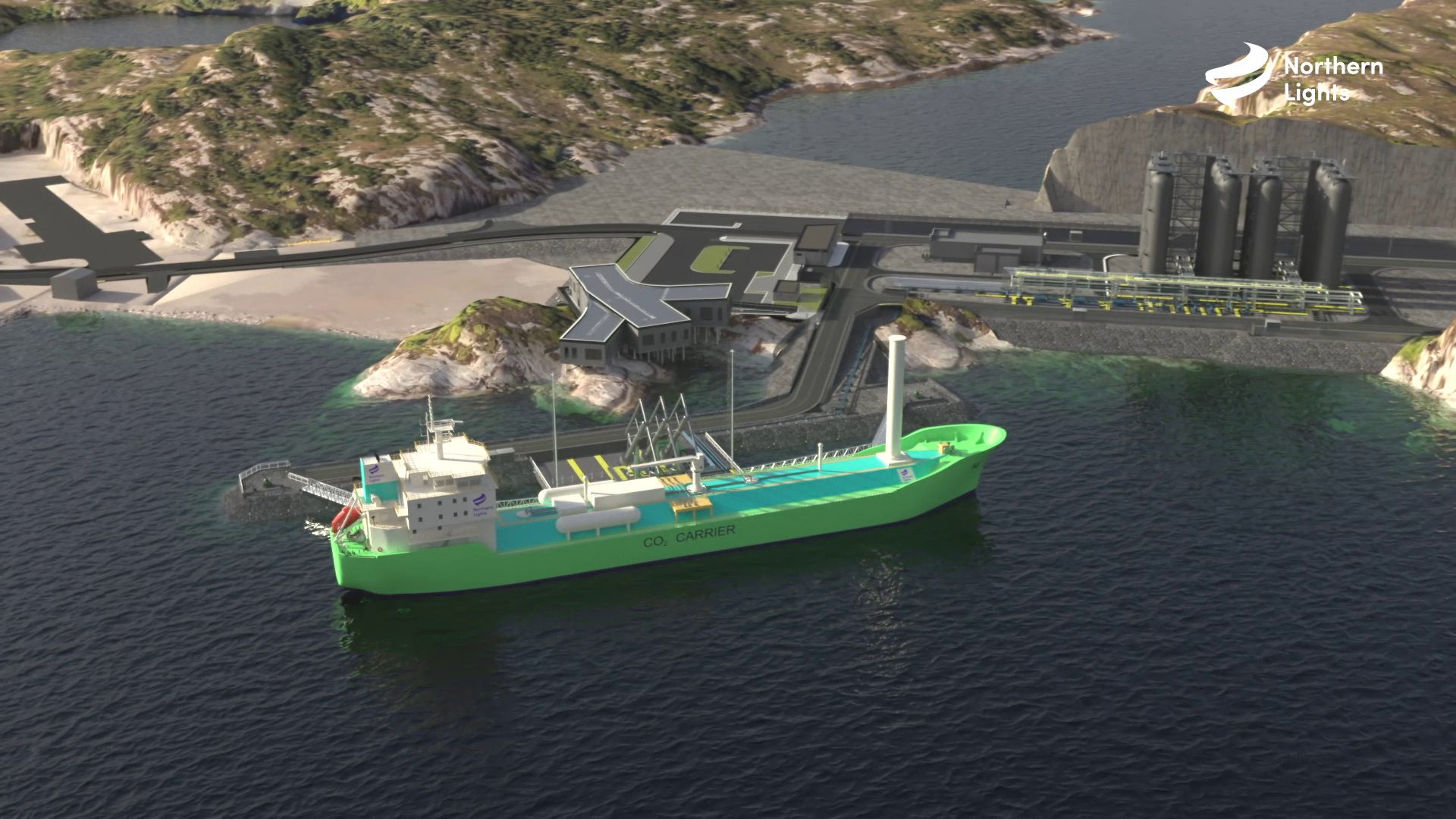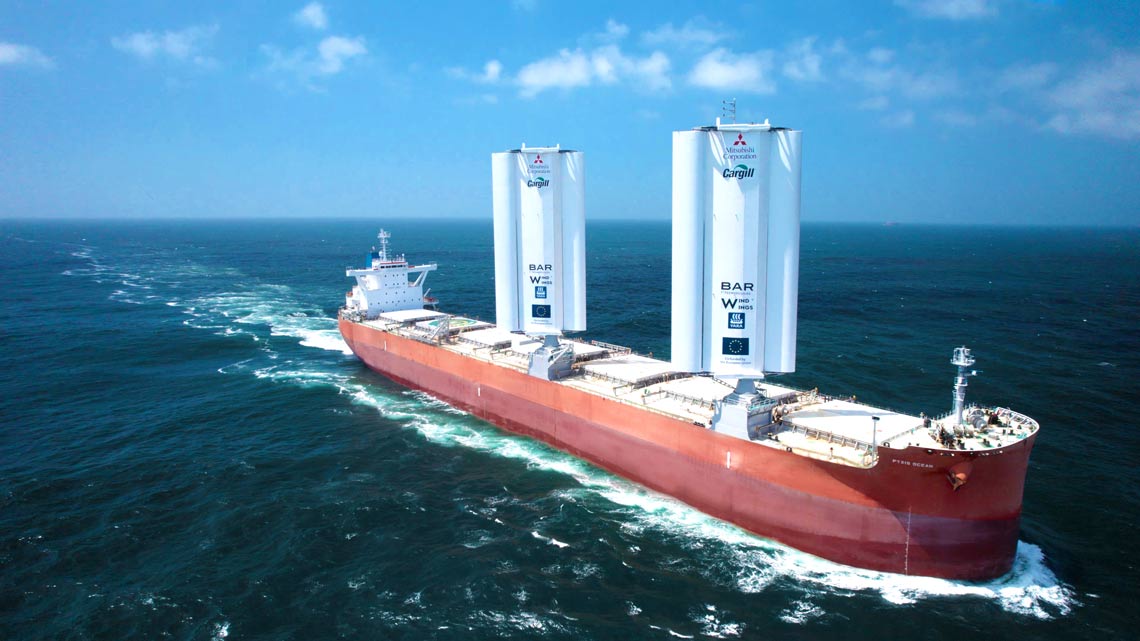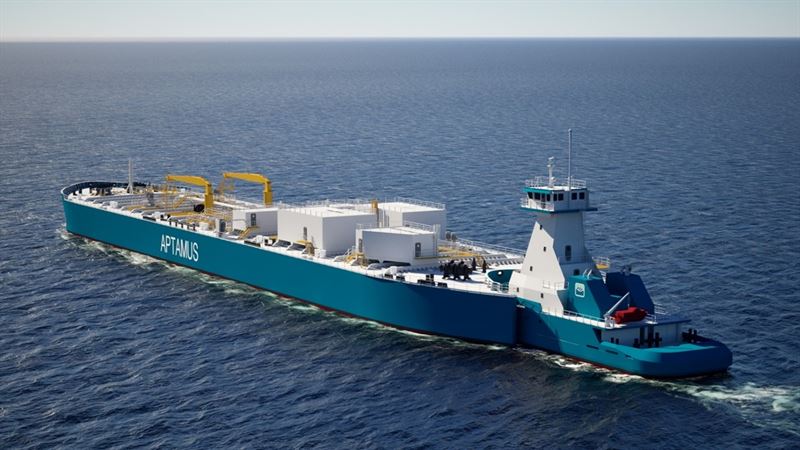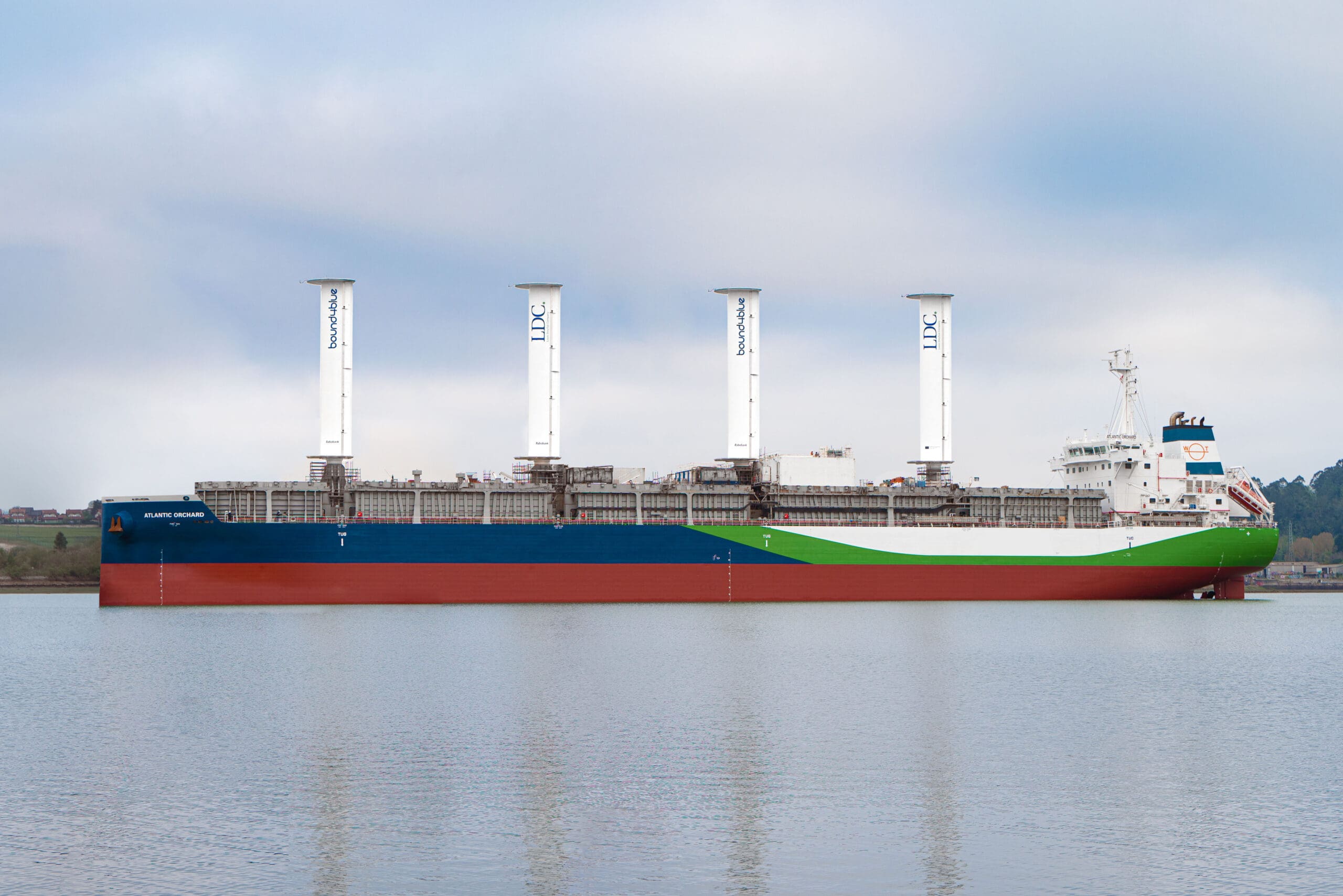Finnish-based wind propulsion specialist Norsepower has received a contract to supply its Rotor Sails technology on board two liquefied CO2 carriers commissioned by the Northern Lights JV in Norway.
The contract was signed with Dalian Shipbuilding Industry Company in China and entails the delivery of single Rotor Sails onboard two newbuild LNG-powered CO2 carriers under construction.
Northern Lights is developing the transport and storage component of the Norwegian government’s Longship project, which includes the capture of CO2 from industrial sources in the Oslo region of Norway. Once captured, the liquid CO2 will be shipped to an onshore receiving terminal on Norway’s west coast, then transported by pipeline to a subsea reservoir below the North Sea for permanent storage.
The two liquified CO2 carriers will each be equipped with a single 28-meter-tall by 4-meter-diameter Rotor Sail, which Norsepower estimates will reduce fuel consumption and associated CO2 emissions by approximately 5%.
Norsepower’s Rotor Sails are a modernized version of the Flettner rotor, a spinning cylinder that uses the Magnus effect to harness wind power and generate thrust. When wind meets the spinning Rotor Sail, the airflow accelerates on one side of the cylinder and decelerates on the opposite side. The change in the speed of airflow results in a pressure difference,creating a lift force that is perpendicular to the wind flow direction.
The two first-of-its-kind CO2 carriers have been designed by Northern Lights. The vessels will measure 130-meters-long and come with a cargo capacity 7,500 cubic meters.
“The industry is transforming quickly and newbuild vessels are being built today to operate efficiently ahead of 2050,” said Tuomas Riski, CEO of Norsepower. “Therefore we are seeing the industry seeking to build vessels today which already have proven energy efficiency solutions onboard which can reduce fuel consumption, the associated costs as well as reduce emissions.”
In addition to auxiliary sail power and LNG fuel, the CO2 carriers will also feature other energy efficiency technologies including air lubrication.
“Our technology, alongside an air lubrication system and other clean technologies will ensure operations are as low carbon as possible. This initiative also highlights the role that cleaner shipping has within complex supply chains and decarbonisation strategies outside of the immediate industry,” added Riski.
The Rotor Sails will be delivered to the shipyard in early 2023, while both of the CO2 carriers are expected to be delivered in 2024.
Once in operation, the vessels transport captured and liquefied CO2 and carry it to the Northern Lights receiving terminal in Norway’s Øygarden.
Since its establishment in 2012, Norsepower has installed its Rotor Sail technology on at least six vessels, including one tanker, two passengers vessels, a VLOC bulk carrier, and two roll-on/roll-off vessels. Depending on use, multiple Rotor Sails can be installed on a single vessel. Some are also designed to tilt, allowing vessels to navigate on height-restricted routes while using the technology.
The Northern Lights JV is made up of Equinor, Shell and TotalEnergies.
Editorial Standards · Corrections · About gCaptain

 Join The Club
Join The Club











